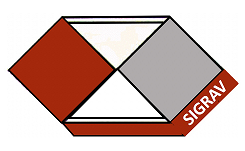Conveners
Gravitational Waves
- Bernard Schutz
- Gianluca Guidi (FI)
In 2015, the two LIGO detectors revealed for the first time a gravitational wave from the coalescence of two black holes. Two years later Virgo joined LIGO in a worldwide network of advanced gravitational wave detectors, and the detection of a gravitational wave from the coalescence of a neutron binary star in 2017 opened the era of multi-messenger astronomy. Today, the LIGO-Virgo...
I will present the results of numerical relativity simulations of compact object binaries. I will focus in particular on the effects that magnetic fields can have in two different scenarios: binary neutron stars and supermassive black hole binaries. In the first one, magnetic fields can affect the post-merger evolution of the remnant and in particular its gravitational and electromagnetic...
Quantum noise is limiting the sensitivity of ground based gravitational wave detectors both at high and low frequency. Carlton Caves in 1980s proposed to introduce particular quantum states of lights, called vacuum squeezed states, from the output port of the detector to reduce this noise. In O3, the injection of frequency independent squeezing improved Virgo and LIGO sensitivities at high...
In this talk I will present a fully Bayesian parameter-estimation pipeline to measure the properties of inspiralling stellar-mass black hole binaries with LISA.
Our strategy (i) is based on the coherent analysis of the three noise-orthogonal LISA data streams, (ii) employs accurate and computationally efficient post-Newtonian waveforms –accounting for both spin-precession and orbital...

